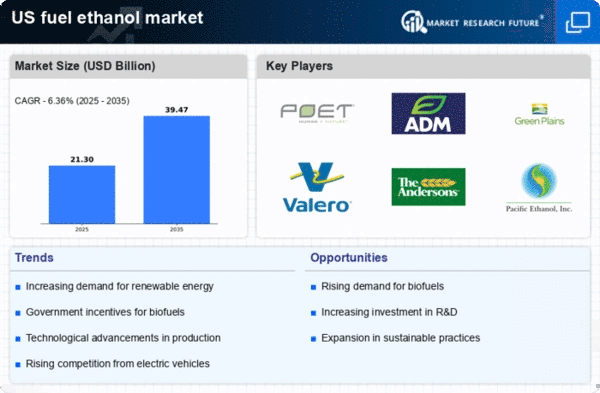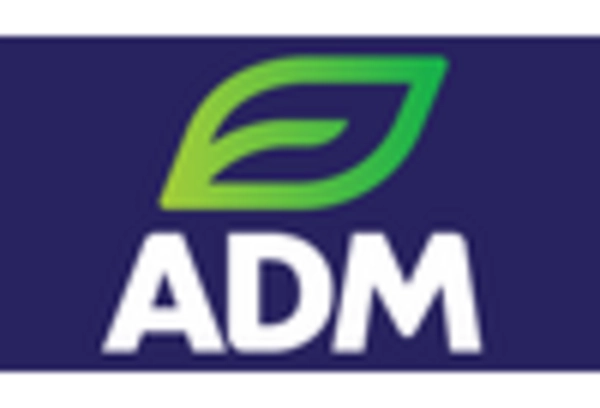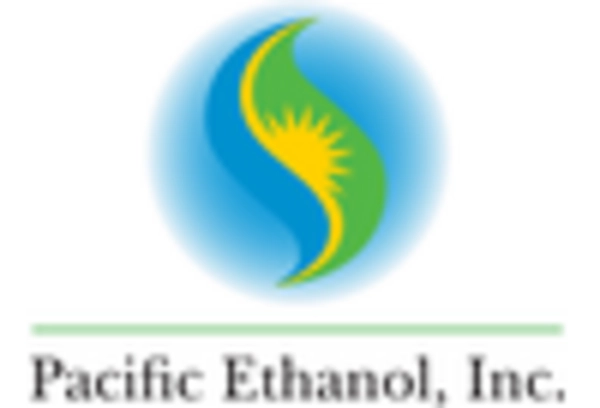The fuel ethanol market exhibits a dynamic competitive landscape characterized by a blend of innovation, sustainability initiatives, and strategic partnerships. Key players such as POET LLC (US), Archer Daniels Midland Company (US), and Green Plains Inc. (US) are at the forefront, each adopting distinct strategies to enhance their market positioning. POET LLC (US) focuses on technological advancements in production processes, aiming to increase efficiency and reduce carbon emissions. Meanwhile, Archer Daniels Midland Company (US) emphasizes diversification in its product offerings, integrating biofuels with other agricultural products to create a more resilient business model. Green Plains Inc. (US) is actively pursuing partnerships to expand its renewable energy portfolio, indicating a trend towards collaborative approaches in the sector.The business tactics employed by these companies reflect a concerted effort to optimize supply chains and localize manufacturing. The market structure appears moderately fragmented, with several players vying for market share while also collaborating on sustainability initiatives. This competitive environment is shaped by the collective influence of these key players, who are increasingly focused on aligning their operations with environmental regulations and consumer preferences for greener alternatives.
In October POET LLC (US) announced a partnership with a leading technology firm to develop advanced fermentation techniques aimed at enhancing ethanol yield. This strategic move is likely to bolster POET's competitive edge by improving production efficiency and reducing operational costs, thereby positioning the company favorably in a market that increasingly values sustainability and innovation.
In September Archer Daniels Midland Company (US) launched a new line of bio-based products derived from ethanol, targeting the growing demand for sustainable materials in various industries. This initiative not only diversifies their product range but also aligns with global trends towards sustainability, potentially attracting a broader customer base and enhancing brand loyalty.
In August Green Plains Inc. (US) completed the acquisition of a regional ethanol plant, which is expected to increase its production capacity by 15%. This acquisition reflects a strategic effort to consolidate its market presence and leverage economies of scale, which may enhance profitability in a competitive landscape where operational efficiency is paramount.
As of November the fuel ethanol market is increasingly defined by trends such as digitalization, sustainability, and the integration of artificial intelligence in production processes. Strategic alliances are becoming more prevalent, as companies recognize the value of collaboration in achieving shared sustainability goals. Looking ahead, competitive differentiation is likely to evolve from traditional price-based competition to a focus on innovation, technological advancements, and supply chain reliability, suggesting a transformative shift in how companies position themselves in the market.
















